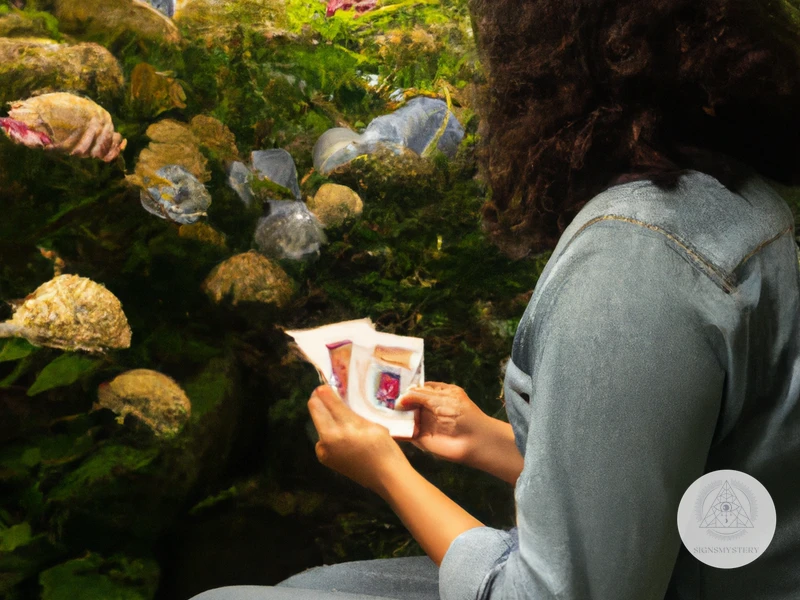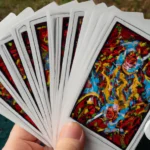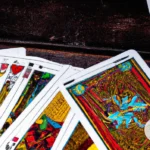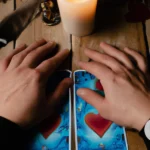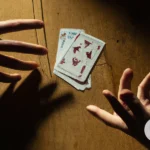Are you feeling lost or uncertain about the direction of your life? Do you wish for some guidance or clarity on your spiritual journey? Oracle cards may provide the answers you seek. With their rich symbolism and intuitive messages, Oracle cards can help you connect with your inner wisdom and gain new insights into yourself and the world around you. In this article, we will explore self-reflection techniques with Oracle cards, including how to prepare for a reading, asking the right questions, and journaling your journey. We will also offer expert tips on using Oracle cards for self-reflection and embracing your spiritual growth. So, let’s dive in and discover the power of Oracle cards together.
What are Oracle Cards?
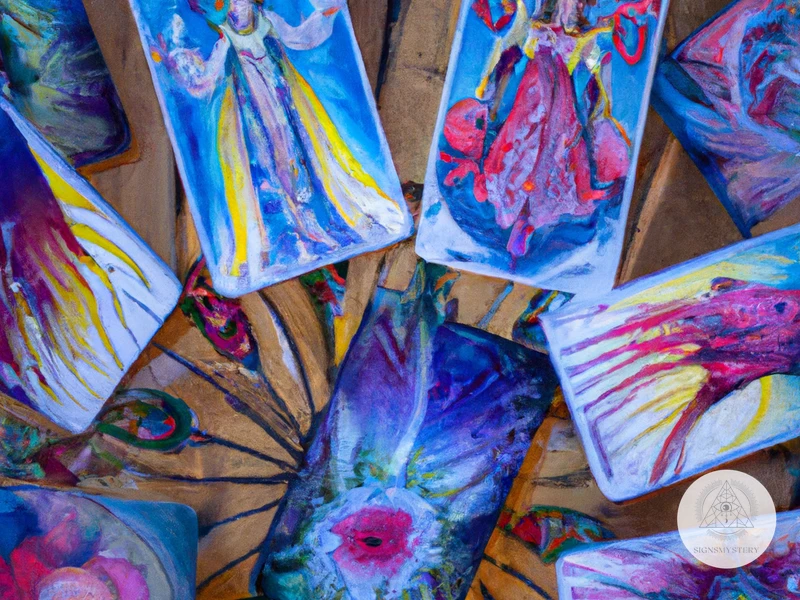
Oracle cards are a tool used to gain insight into one’s life and connect with the spiritual realm. Unlike tarot cards, which have a more strict and structured system, oracle cards can vary in both their design and the way they are used. Oracle cards can have many different themes, such as angels, guides, and animals, allowing them to tap into specific energies and messages. Some popular oracle cards include the “Sacred Rebels Oracle” and the “Wild Unknown Oracle.” Oracle cards can be used for personal growth and self-reflection, helping individuals gain a better understanding of themselves and their life purpose. For more information on self-reflection techniques using tarot cards, check out our guide on /tarot-self-reflection/.
The History and Purpose of Oracle Cards
Oracle cards have been around for centuries and have been used in various cultures for divination and ritual practices. They were initially developed as a tool for seeking guidance and wisdom from the spiritual realm. Oracle Cards are often seen as a more approachable alternative to Tarot Cards because they typically have fewer cards and simpler imagery.
How Oracle Cards Differ from Tarot Cards
While both oracle cards and tarot cards are used for divination and self-reflection, they have some notable differences.
Firstly, tarot decks have a standardized structure with 78 cards, divided into the Major and Minor Arcana. Major Arcana cards represent major life events and spiritual lessons, while Minor Arcana cards represent the everyday challenges and experiences. Oracle cards, on the other hand, are not limited to a specific structure or number of cards. Each deck can have a unique number and theme of cards.
Additionally, tarot cards often have more complex and intricate imagery, while oracle cards usually have simpler and more direct images. Tarot cards can also provide more specific and detailed information, whereas oracle cards focus more on providing guidance and insight in a broader sense.
Tarot cards often require a more intensive study and practice to fully understand and interpret their meanings and messages. On the other hand, oracle cards are usually easier to use, making them a great option for beginners or those who prefer a more intuitive approach to divination.
Ultimately, the decision to use oracle or tarot cards for self-reflection is a personal one. Both can provide valuable insight and guidance on one’s spiritual journey and personal development. It may be worth trying out both to see which one resonates more with you.
If you’re interested in learning more about self-reflection with tarot cards, check out our informative guide on self-discovery with tarot cards. Alternatively, if you want to explore the benefits of mindfulness and self-awareness with tarot, read our article on tarot and mindfulness.
Preparing Yourself and Your Space for Oracle Card Reading
Before beginning a self-reflective Oracle card reading, it’s important to properly prepare yourself and your space. Setting the right mindset and intentions is the first step. Take a few minutes to quiet your mind and focus on what you hope to gain from the reading. Next, it’s important to cleanse and charge your cards. This can be done by smudging them with sage or palo santo, placing them under a full moon, or simply holding them in your hands while setting positive intentions. Lastly, creating a sacred space for your reading can enhance the experience. This can be as simple as lighting a candle or using crystals in your space. By taking these steps, you are preparing yourself and your surroundings for a successful self-reflective Oracle card reading. For further guidance on self-reflection with tarot, check out this article on the benefits of tarot for self-reflection or this one on tarot spreads for self-reflection and growth.
Setting the Right Mindset and Intentions
Setting the right mindset and intentions is crucial for any successful oracle card reading. Your mental state should be calm and focused, as this will help you to connect with the messages contained within the card deck. Before beginning your session, take a few deep breaths to clear your mind of any distracting thoughts or worries.
It’s also important to set a clear intention for your reading. This could be a specific question you want to ask the cards or a general area of your life you want to reflect on. By setting an intention, you are signaling to the universe that you are open to receiving guidance and messages from the cards.
One way to set the right mindset and intentions is through meditation. Prior to your reading, take some time to meditate and ground your energy. This will help you to tune into your intuition and connect with the deeper spiritual meaning of the cards.
It’s important to remember that oracle cards are not a magic solution to your problems. Rather, they are a tool to help you gain insight and clarity into your life. By setting the right mindset and intentions, you are opening yourself up to the possibility of self-reflection and growth through the use of oracle cards.
So, take a few moments to center yourself and set your intentions before you begin your oracle card reading. With the right mindset and intentions, you can gain a deeper understanding of your inner self and the world around you, paving the way for spiritual growth and self-discovery. If you want to know about the difference between oracle cards and tarot cards, click here. Or if you want to know how oracle cards can help in connecting your inner self, click here.
Cleansing and Charging Your Oracle Cards
Cleansing and Charging Your Oracle Cards
When it comes to using oracle cards for self-reflection, it’s crucial to keep them clean and energized. Oracle cards are believed to hold energy, which means they can absorb negative energies and emotions over time. Here are some tips for cleansing and charging your oracle cards:
1. Salt Bath: One of the easiest and most effective methods for cleansing your oracle cards is to give them a salt bath. Fill a bowl with sea salt or table salt and bury your deck in the salt for several hours. This will draw out any negative energies and cleanse your deck.
2. Moonlight: Another method to cleanse your oracle cards is to place them in the light of the full moon. This is especially effective for removing negative energies and restoring balance to your deck. Set your cards out on a windowsill or balcony under the moonlight, and leave them there overnight.
3. Sound Therapy: You can use sound therapy to clear the energy from your oracle cards. You can use a singing bowl or play music with specific frequencies that are known to promote relaxation and healing.
4. Intention: Another way to charge your oracle cards is by infusing them with your own positive energy and intentions. Hold your deck in your hands and visualize a bright light surrounding it. Say some positive affirmations out loud, such as “My deck is protected and filled with positive energy.”
By cleansing and charging your oracle cards regularly, you can ensure that your deck remains strong, accurate, and effective. Remember, your oracle cards are powerful tools for growth, and they deserve to be treated with respect and care.
Creating a Sacred Space for Your Oracle Card Reading
Creating a Sacred Space for Your Oracle Card Reading is an important step in preparing yourself and your environment for an intentional and meaningful practice. Here are some tips to create a sacred space for your Oracle card reading:
| Tip | Description |
|---|---|
| Choose a quiet and private space | Find a space in your home where you won’t be disturbed. This could be a special corner in your bedroom, living room, or a separate room designated for the purpose of Oracle card reading. |
| Set the mood with candles or incense | Light some candles or burn some incense to create a relaxed and peaceful atmosphere. Choose scents that you enjoy and that will inspire you to be present in the moment. |
| Play soft music or nature sounds | Putting on some soft music or nature sounds can help you to relax and unwind. Choose something that won’t distract you from your reading, but instead adds to the ambiance of your sacred space. |
| Add meaningful decorations | Decorate your sacred space with meaningful objects that inspire you. This could be crystals, statues, plants, or artwork. Choose things that have personal significance to you and that help to elevate your spiritual energy. |
| Use a special cloth or table runner | Use a special cloth or table runner to cover your reading surface. This adds to the aesthetic and also creates a boundary for your practice. Choose colors and fabrics that resonate with you and your intentions for the reading. |
| Keep your space clean and organized | Make sure that your sacred space is always clean, organized, and clutter-free. A clear space helps to clear your mind and energy so that you can better focus on your reading. It also shows respect for the practice and the sacredness of the space. |
By creating a sacred space for your Oracle card reading, you are setting the intention for a focused and meaningful practice. This intentional environment can help you to connect more deeply with your intuition and the messages from your cards. Remember to take the time to prepare your space before each reading and to show gratitude for the guidance you receive.
Five Self-Reflection Techniques with Oracle Cards
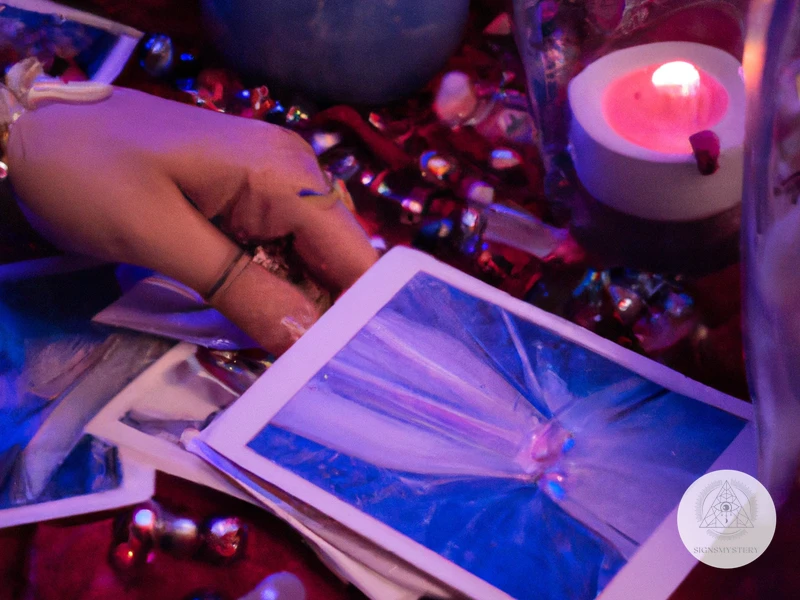
Using oracle cards is not just a fun activity for divination, but also a powerful tool for self-reflection. Daily Oracle Card Draw is an effortless yet effective way to connect with your intuition and receive guidance for the day ahead. Asking the Right Questions is essential for getting specific answers from the oracle cards. You can focus on various areas of your life, such as career, health, relationships, or spirituality. Journaling Your Journey with Oracle Cards helps you capture your thoughts, feelings, and insights after each reading. You can also track your progress and identify patterns in your life. Visualizing with Oracle Cards can be a fun and imaginative way to tap into your creativity and manifest your desires. You can create a visualization board or collages based on the images and messages from your oracle cards. Finally, Exploring Complex Issues with Oracle Cards can help you gain clarity on challenging situations and emotions. By using different oracle card spreads and interpretations, you can gain multiple perspectives on the issue and find a solution that resonates with you.
1. Daily Oracle Card Draw
One of the most effective self-reflection techniques with oracle cards is the practice of a daily oracle card draw. This simple yet powerful practice involves drawing a card from the deck each day and reflecting on its message and how it may relate to your life.
To start, choose a time each day to draw your card. This can be in the morning to set intentions for the day ahead or in the evening to reflect on the events of the day. Find a quiet and comfortable space where you can focus and connect with your intuition.
Once you have set the intention for your reading, shuffle the deck and draw one card. Take a moment to look at the imagery and symbolism on the card. What stands out to you? What emotions does it evoke?
Next, read the description of the card in the guidebook (if your deck comes with one) or do your own research on the meaning of the card. Reflect on how the message of the card may relate to your current situation or anything you have been struggling with lately.
Finally, use your journal to record your card draw and any insights or revelations that came to you during the reading.
Here is an example table for tracking your daily oracle card draws:
| Date | Card Drawn | Message/Reflection |
|---|---|---|
| January 1 | The Empress | I need to focus on nurturing myself and my relationships this year. |
| January 2 | Three of Swords | I need to work through some emotional pain and let go of past hurts. |
| January 3 | The Sun | Today is a day of positivity and optimism. I need to focus on my goals and stay motivated. |
By practicing a daily oracle card draw, you can gain valuable insights and guidance on your journey of self-reflection and growth. It is a powerful tool for connecting with your intuition, gaining clarity, and promoting self-awareness.
2. Asking the Right Questions
Asking the right questions is crucial when it comes to using oracle cards for self-reflection. These cards can provide guidance and insights, but the quality of the answers you receive will depend on the quality of the questions you ask. Here are some tips for asking the right questions:
Focus on the present moment: When you ask questions, try to focus on the present moment rather than the past or future. The present moment is where your power lies, and it’s where you can make changes that will impact your future.
Be specific: Vague or general questions will yield vague or general answers. Instead, try to be as specific as possible. For example, instead of asking “What is my purpose in life?”, ask “What steps can I take to align with my purpose?”.
Ask open-ended questions: Questions that can be answered with a simple “yes” or “no” don’t leave much room for exploration. Instead, ask open-ended questions that encourage exploration and reflection. For example, instead of asking “Will I find love?”, ask “What can I do to attract more love into my life?”.
Use empowering language: The words you use in your questions can have a huge impact on the answers you receive. Try to use empowering language that focuses on growth and transformation. Instead of asking “Why am I so unlucky?”, ask “What can I do to improve my luck?”.
Remember that oracle cards are a tool for self-reflection and growth, and the questions you ask should reflect that. Approach your readings with an open mind and a willingness to explore, and you’ll be amazed at the insights you can gain.
3. Journaling Your Journey with Oracle Cards
One way to deepen your self-reflection practice with oracle cards is through journaling. After drawing a card, take some time to reflect on its message and write down your thoughts. This process can help you gain clarity and insights into your current situation and emotions.
When journaling with oracle cards, it’s important to write down the date, card drawn, and any initial impressions or feelings. You can also explore the symbolism and imagery of the card, and how it relates to your life. Ask yourself questions such as “What challenges am I facing in relation to this card?” or “What strengths can I draw upon to move forward?”
Journaling can also help you track your progress over time. You can look back on your previous entries and see how you’ve grown and learned from your experiences. It’s also a great way to stay accountable and motivated on your spiritual journey.
To enhance your journaling practice, consider adding creative elements such as drawing or collage. You can also incorporate affirmations or intentions based on the message of the card to help manifest positive change in your life.
Remember to approach journaling with an open and curious mind, allowing yourself to explore and discover new insights and perspectives. With consistent practice, journaling with oracle cards can be a powerful tool for self-reflection and personal growth.
4. Visualizing with Oracle Cards
Another effective self-reflection technique for using oracle cards involves visualizing with the cards. This technique can help you tap into your subconscious mind and visualize your goals, desires, and aspirations.
To begin, choose an oracle card that resonates with your current goal or intention. Look at the card and focus on the image, colors, and symbols that evoke a feeling within you. Next, close your eyes and take deep breaths, allowing your mind to become clear and focused.
As you inhale and exhale, envision yourself within the scene of the card. Imagine that you are a part of the picture and connect with the energy of the card. Allow yourself to feel the emotions that the card brings up and embrace the message that it conveys.
This technique can help you tap into your innate creativity and imagination and help you see your goals in a new light. By visualizing with your oracle cards, you can gain clarity about your desires, identify
Subscribe to Our Newsletter
Sign up to receive the latest news and updates.
Remember that visualizing with oracle cards is not about predicting the future, but rather about tapping into your inner wisdom and intuition. By embracing the messages of the cards and using them as a tool for self-reflection, you can unlock your full potential and achieve your goals with greater ease and clarity.
When you finish your visualization, take some time to jot down any insights, ideas, or inspirations that come to mind. This will help you solidify your insights and understand the messages of the cards on a deeper level, allowing you to integrate their wisdom into your everyday life.
5. Exploring Complex Issues with Oracle Cards
Oracle cards can also help you unpack and understand complex issues that you’re facing in your life. Here are a few techniques you can use:
| Technique | Description |
|---|---|
| Spread Technique | The spread technique involves laying out a series of oracle cards in a specific order to provide insight or clarity into complex issues. You can also use a specific spread to target a particular area of your life. For instance, you can use a relationship spread to get insights about your romantic relationships. |
| Element Technique | The element technique involves focusing on a particular element that is associated with the issue you want to explore. For example, if you’re dealing with a relationship issue, you can focus on the element of water, which is associated with emotions, intuition, and healing. |
| Intuitive Technique | The intuitive technique allows you to trust your instincts and intuition when interpreting the messages and symbols of the oracle cards. Instead of relying on set meanings and interpretations, you allow your intuition to guide the reading and uncover deeper insights. |
When exploring complex issues with oracle cards, it’s important to keep an open mind and approach the reading with an attitude of curiosity and exploration. Make sure to also set a clear intention before beginning and focus on the issue you want to explore. Once you select the cards, take some time to reflect on their messages and how they relate to your situation. Remember that oracle cards are a tool for self-reflection and growth, and their purpose is to provide guidance and inspiration rather than to give a concrete solution to your problems.
Expert Tips for Using Oracle Cards for Self-Reflection
When using oracle cards for self-reflection, there are several expert tips that you should keep in mind. First and foremost, it is crucial to trust your intuition when interpreting the cards. Avoid getting too caught up in the guidebook’s meanings and instead rely on your own inner wisdom. Additionally, it is important to keep a record of your readings, whether through journaling or some other form of note-taking. This will allow you to track patterns and progress over time. Another valuable tip is to connect with like-minded individuals who also use oracle cards for spiritual growth. This can provide a supportive network and opportunities for learning. Lastly, it is important to avoid dependency on the cards. While they can be a powerful tool, ultimately, our intuition and inner guidance should be our main source of insight and guidance.
Trust Your Intuition
Trust Your Intuition:
Trusting your intuition is one of the most essential practices when it comes to working with Oracle cards. Intuition can be described as that “inner knowing” or “gut feeling” that comes from a deeper part of ourselves. Trusting your intuitive senses means recognizing and acknowledging the messages and insights that come through during a reading without dismissing them, even if they don’t make sense in the moment. Here are some tips for learning to trust your intuition during an Oracle card reading:
- Start Small: If you’re new to using Oracle cards and aren’t sure how to trust your intuition, start with simpler readings. Pull a single card and practice tuning into your intuition to interpret its message. Over time, you’ll build trust in your abilities and can move on to more complex readings.
- Stay Present: During your reading, stay focused on the present moment and the energy of the cards. Avoid getting caught up in past or future worries or anxieties. Staying present helps to keep your intuitive senses open and can make the messages you received clearer.
- Pay Attention to Physical Sensations: Trusting your intuition can involve tuning into physical sensations in your body. You might feel a sudden chill or tingling sensation that indicates a message is coming through. Alternatively, you might experience a sense of warmth or lightness that signals that everything is aligned.
- Don’t Overthink: One of the biggest obstacles to trusting your intuition is overthinking. When you’re analyzing and second-guessing every message that comes through, you can quickly lose trust in your abilities. Instead, try to quiet your mind and simply allow the messages to come through without judgment or analysis.
- Practice Patience: Learning to trust your intuition takes time and practice. Be patient with yourself and don’t give up if you’re struggling in the beginning. Keep practicing, and your intuition will become stronger and more accurate over time.
By learning to trust your intuition, you can deepen your connection with your Oracle cards and unlock powerful insights and guidance. Remember that everyone’s intuition is unique, and what works for one person may not work for another. The key is to stay open, curious, and engaged with the messages that come through during your readings.
Keep a Record of Your Readings
Keeping a record of your oracle card readings is highly recommended to help you track your progress and reflect on your experiences. When you record your readings, you create a personal oracle card journal that you can look back on and learn from.
Here are some tips on what you can include in your journal:
- Date: Record the date of your reading so that you can track your progress over time.
- Question: Write down the question that you asked the oracle cards. This will help you remember the context of the reading.
- Card(s) Drawn: Record which card or cards you drew. You may want to include a picture of the card as well.
- Interpretation: Write down your interpretation of the card(s) drawn and how they relate to the question asked.
- Reflection: Reflect on how the reading made you feel and any insights or actions you gained from it. Was the reading accurate or helpful?
By keeping a record of your oracle card readings, you can also notice patterns or recurring themes that may arise in your readings. This can help you identify areas of your life that may need more attention or offer guidance for your spiritual growth.
It’s also a good idea to periodically review your journal to see how much you’ve grown and changed since your first reading. This can help you appreciate your progress and also offer new insights on old readings.
Remember to always trust your intuition when interpreting your oracle card readings, and keep an open mind. Your personal oracle card journal is a valuable tool for personal growth and reflection, so make sure to use it consistently and with intention.
Connect with Like-Minded People
Connecting with like-minded people can provide a supportive community for your spiritual growth with oracle cards. These individuals may have similar goals, experiences, and insights, allowing for a deeper understanding and connection. Here are a few ways to connect with like-minded individuals:
| Method | Description |
|---|---|
| Online Communities | Join online forums, groups, or social media communities dedicated to oracle card readings or spirituality. These communities offer a safe space to ask questions, share experiences, and connect with others. |
| In-Person Meetups | Attend in-person meetups, workshops, or retreats focused on oracle card readings or spirituality. These events provide an opportunity to connect with individuals in real life and can be a fun and rewarding experience. |
| Professional Communities | Join professional organizations or groups focused on oracle card readings or spirituality. These communities often offer resources, networking opportunities, and support to members. |
Connecting with like-minded individuals can also offer a sense of accountability and motivation for your spiritual growth. You can share your goals and progress with your community, and they can offer support and encouragement along the way.
However, it’s important not to compare yourself to others or seek validation solely from external sources. Remember that your spiritual journey is unique and personal, and connecting with like-minded individuals should be a supplement to your own self-reflection and growth.
By connecting with like-minded individuals, you can build a supportive community for your spiritual growth with oracle cards and deepen your understanding and connection to the practice.
Avoid Dependency on Oracle Cards
As helpful as oracle cards can be for self-reflection and personal growth, it’s important to avoid becoming too dependent on them. Dependency on oracle cards can limit your own intuitive abilities and hinder your personal growth over time. Here are a few things to consider when using oracle cards to avoid falling into the trap of dependency:
1. Use oracle cards as a tool for growth, not as a crutch. While oracle cards can provide valuable insights and guidance, it’s essential to remember that they are only one piece of the puzzle. Don’t rely solely on oracle cards for decision-making, and don’t let them dictate your life choices. Instead, use them as a tool to gain clarity and perspective on certain situations.
2. Don’t use oracle cards to escape your problems. It’s important to face and address the challenges in your life rather than using oracle cards as a way to ignore them. Make sure you are using oracle cards with the intention of growth and self-awareness, not as a means of avoidance.
3. Trust your own intuition and inner guidance. While oracle cards can provide valuable insights, it’s important to trust your own intuition and inner voice. Don’t let the guidance from oracle cards override your own inner guidance and knowing. Remember that the power to make choices and decisions ultimately lies within you.
4. Don’t become addicted to seeking answers from oracle cards. It’s easy to become addicted to seeking answers from oracle cards, but this can actually hinder your own personal growth and development. Try to balance your use of oracle cards with other self-reflection techniques, such as meditation or journaling.
Remember that the ultimate goal of using oracle cards for self-reflection and personal growth is to become more self-aware and intuitive. By avoiding dependency on the cards, you can gain a deeper connection with your own inner guidance and continue to grow and develop in your own unique way.
Conclusion: Embracing Your Spiritual Growth with Oracle Cards
In conclusion, embracing your spiritual growth with oracle cards can be a rewarding and insightful journey. By incorporating self-reflection techniques with oracle cards into your daily routine, you can gain a deeper understanding of yourself and the world around you.
Remember to approach your oracle card readings with an open mind, and focus on setting the right intentions and creating a sacred space for your practice. Cleansing and charging your cards regularly is also important to maintain their energy and accuracy.
When exploring complex issues with oracle cards, don’t be afraid to ask the right questions and journal your journey to gain a clearer perspective. Visualizing with oracle cards can also be a powerful tool for manifestation and creating the life you desire.
Expert tips for using oracle cards for self-reflection include trusting your intuition, keeping a record of your readings, and connecting with like-minded people. It’s important to avoid dependency on oracle cards, as they should be used as a tool for guidance rather than a crutch for decision making.
Incorporating oracle cards into your spiritual practice can be a transformative experience, helping you to uncover hidden truths about yourself and providing guidance on your path towards personal growth. So, embrace the power of oracle cards and start your journey towards spiritual enlightenment today.
Frequently Asked Questions
What is the difference between Oracle Cards and Tarot Cards?
While both Oracle and Tarot Cards are used for divination, Oracle Cards offer a broader range of messages and themes, while Tarot Cards have a more structured system and strict meanings for each card.
What is the best time of day to use Oracle Cards?
The best time to use Oracle Cards is during a time when you can focus and connect with your inner self without any distractions. This could be in the morning, afternoon, or evening, depending on your schedule and personal preference.
Can anyone use Oracle Cards, or do you need special training?
Anyone can use Oracle Cards as long as they have an open mind and a willingness to connect with their intuition. While training or practice can help improve accuracy, it is not necessary to use Oracle Cards effectively.
What should I do if I don’t resonate with a particular Oracle Card deck?
If you don’t resonate with a particular Oracle Card deck, it may be helpful to explore other decks until you find one that speaks to you personally. Don’t be afraid to trust your intuition and choose a deck that feels right for you.
How can I cleanse and charge my Oracle Cards?
You can cleanse and charge your Oracle Cards by holding them under running water, smudging them with sage or palo santo, or placing them in direct sunlight or moonlight for a few hours or overnight.
Is it necessary to create a sacred space for Oracle Card readings?
Creating a sacred space for Oracle Card readings can help you to connect more deeply with your intuition and create a peaceful, calming environment. However, it is not necessary if you feel comfortable and focused in your regular environment.
What kind of questions can I ask during an Oracle Card reading?
You can ask any question that relates to your personal growth and development, including questions about relationships, career, spiritual path, and personal challenges.
Why is journaling helpful during an Oracle Card reading?
Journaling can help you to process and reflect on the messages and insights from your Oracle Card reading, as well as track your progress and growth over time.
How often should I use Oracle Cards for self-reflection?
You can use Oracle Cards for self-reflection as often as you like, but it is recommended to start with a daily or weekly practice to build a consistent routine and deepen your intuitive connection.
What should I do if I become overly dependent on Oracle Cards?
If you become overly dependent on Oracle Cards, it may be helpful to take a break from using them and focus on developing your intuition and inner guidance through meditation, mindfulness, or other spiritual practices.

